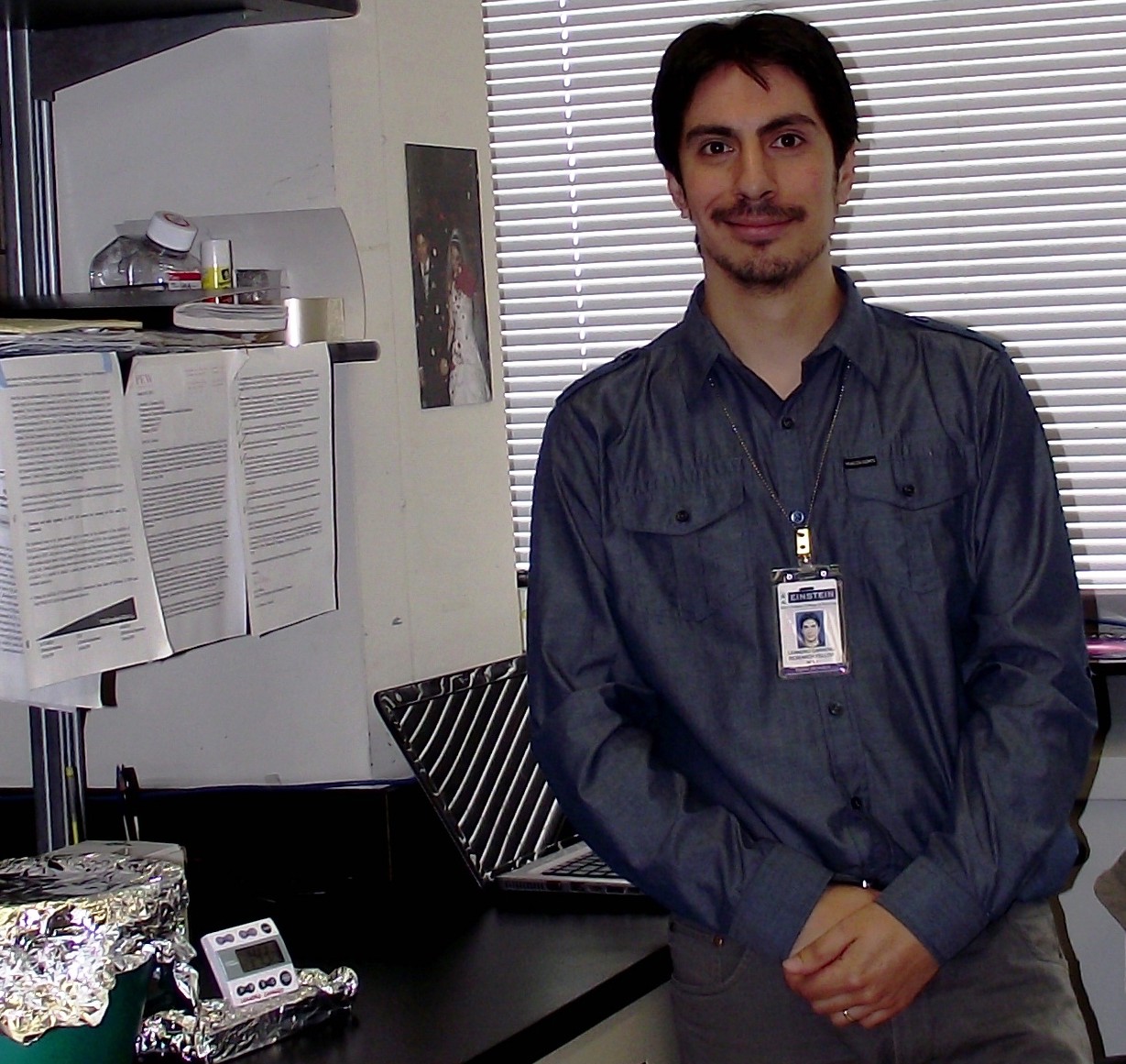Leandro J. Carreno, Ph.D.

- Title
- Postdoctoral Fellow
- Department
- Department of Microbiology & Immunology
- Institution
- Albert Einstein College of Medicine
- Address
-
Jack and Pearl Resnick Campus
1300 Morris Park Avenue - City, State, ZIP
- Bronx, NY 10461
- Country
- United States
- Phone
- (718) 430-3228
- [email protected]
- Website
- http://www.einstein.yu.edu/home/faculty/profile.asp?id=6474&O=1

- Research field
- Immunology
- Award year
- 2012
- Country of origin
- Chile
- Mentor name
- Dr. Steven A. Porcelli
Research
Allergic diseases develop as an aberrant immune response against innocuous antigens, called allergens, which do not produce inflammatory immune responses in healthy individuals. The type of immune responses involved in allergy is Th2, which is characterized by IL-4-, IL-5- and IL-13-secreting CD4 T cells that mediate an increase of IgE production and the recruitment and activation of mast cells, basophils and eosinophils, resulting in annoying clinical manifestations. Recently, it has been shown that a subgroup of natural killer T cells (NKT cells), known as type-1 or invariant NKT cells (iNKT cells) play an important role in allergic diseases, especially in airway hyper-reactivity during asthma. In contrast to the role played by CD4 T cells and iNKT cells, regulatory T cells (Tregs) has been identified as critical players at down-modulating allergic responses. Although mast cells, basophils and eosinophils are the effectors of the allergic response, it is not clear whether these cells can modulate the allergic responses by a crosstalk with iNKT cells, CD4 T cells and/or Tregs. Mast cells, basophils and eosinophils can express class-II MHC, then acting as non-conventional antigen presenting cells (NC-APCs), suggesting a crosstalk with CD4+ T cells and/or Tregs, by interacting through their T cell receptor (TCR). Similarly, by the expression of CD1d, NC-APCs have the potential to interact with and modulate the activity of iNKT cells. In this project we are evaluating whether NC-APCs modulates iNKT cell, CD4 T cell responses and/or Treg activity, through a contact dependent mechanism, involving immunological synapse-like interactions, or through a contact independent mechanism. This approach will allow the identification of membrane or soluble molecules that participate in the allergic response. Our results may lead to the identification and development of new treatments for asthma and other allergic diseases.